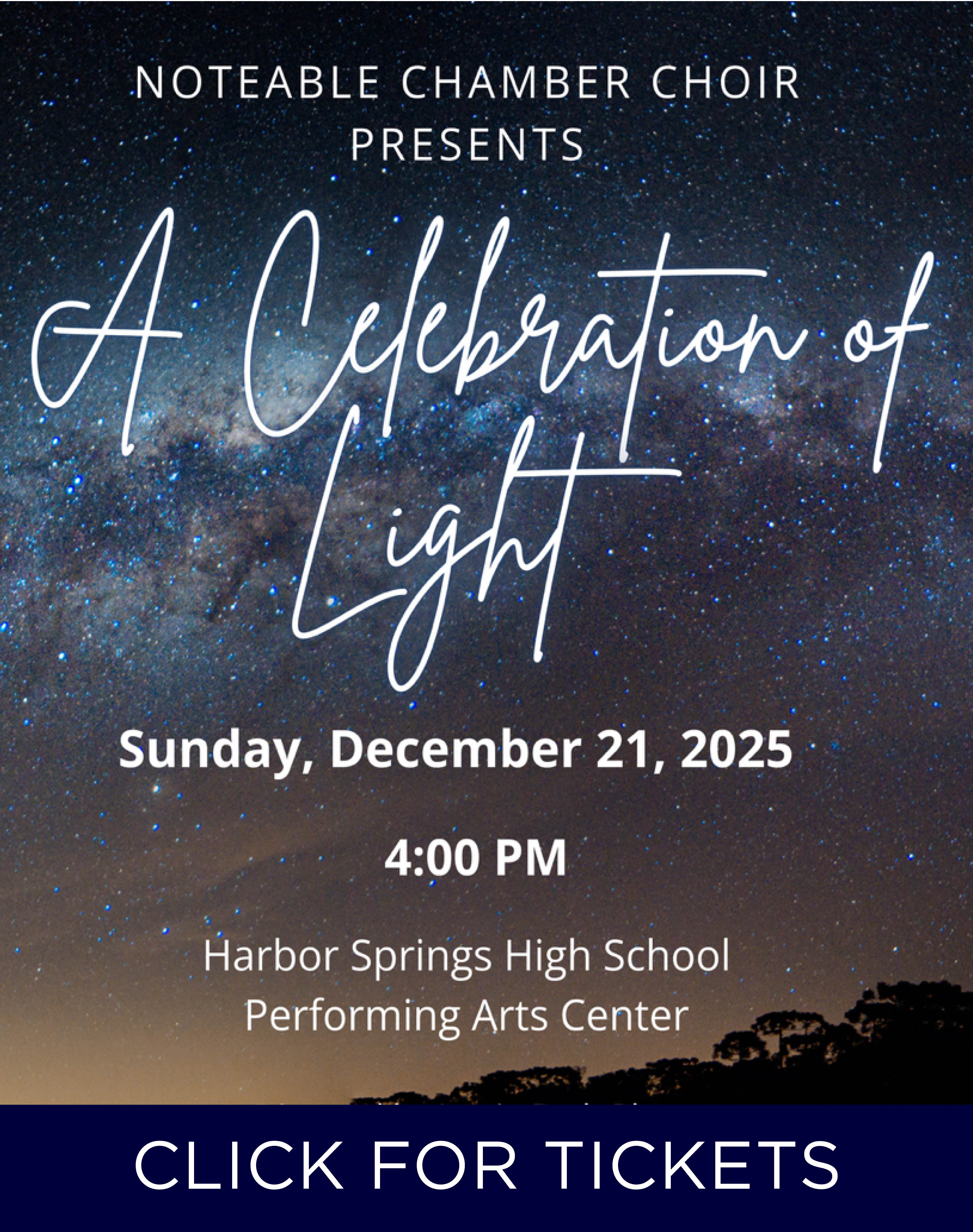Storming Ahead
How two Northern Michigan weathermen wound up running for political office
June 1, 2014
Two Northern Michigan political candidates have weathered more storms than most.
Greg MacMaster (R-Kewadin) and Dave Barrons – both retired weather forecasters – have thrown their respective hats into the political arena.
MacMaster is an incumbent state representative running for the 37th State Senate seat in a hotly contested Republican primary race against Wayne Schmidt (R-Traverse City).
Barrons recently entered his first political race as a Democrat running for the District #2 Leelanau County Commission seat. He will face Republican incumbent Debra L. Rushton in the general election.
Though Barrons and MacMaster wound up on opposite sides of the aisle, they have a lot in common.
They once worked together at the same station, winding up as on-air rivals.
And they both came to television in a roundabout, almost accidental way.
FROM THE STREET TO THE STUDIO
On a whim, Barrons walked into TV 7&4 one day to look for a job after getting passed over somewhere else.
"I literally walked into [the station] and met the general manager who happened to be standing in the lobby," he said. Although nothing was available right then, the station manager must have seen something telegenic in him. In the summer of 1981, he brought Barrons back to the studio for an audition.
"It’s true of all performance businesses like that," he said. "It’s 75 percent timing "¦ and 25 percent talent."
Barrons was hired as a reporter and backup weatherman. After seven years he was made fulltime weatherman. Three years later he jumped to TV 9&10, where he spent two decades.
AIR FORCE METEOROLOGIST
MacMaster’s path to television wasn’t quite as impromptu, but it was close.
MacMaster discovered meteorology in the Air Force after getting exposed to a riskier line of work.
"I loaded conventional weapons and nuclear bombs," said MacMaster, who had graduated Michael Poehlman Photography from Northwestern Michigan College before joining the military. "I found there wasn’t much of a future in that."
MacMaster trained to become a forecaster and then a meteorologist, forecasting weather for bombing missions, NASA, Operation Desert Shield, and the preparation for Operation Desert Storm.
After his military stint, MacMaster began approaching local television stations, letting them know who he was.
"They tried to cut a demo tape," he said, "but I didn’t have the skills as a broadcaster, because I’d never been on TV before."
He started a weather forecasting business in Elk Rapids and taught aviation forecasting at NMC.
"I was building up my résumé as a forecaster when an opportunity arose," he said.
"Dave Barrons gave me a call and said, "˜I’ll help you polish your skills and you can teach me more about weather forecasting and we’ll make it work.’" MacMaster spent a year at 9&10, then left for 7&4, where he eventually was named chief meteorologist, a position he held for 13 years.
MEANDERING INTO POLITICS
Being a weatherman can mean working odd hours.
MacMaster found himself with a lot of free time during the day, in between forecasting the weather on radio in the morning and on TV in the evening.
"I had about six hours where I could go do whatever I wanted. I could go play golf. But everybody else was working," he said. "I wasn’t able to enjoy the late afternoon, evening activities because I’d be working." MacMaster was hired by the History Channel to forecast weather for some episodes of "Deep Sea Detectives." He used historical data to surmise what the weather was like on the day of famous Great Lakes shipwrecks.
"They would ask me: research the weather, recreate it, and tell us if it affected the sinking," he said.
During research for a show about the Cornelia Windiate, which sunk in November 1875 in Lake Huron, MacMaster dove the wreck.
"I thoroughly enjoyed it," he said. "I didn’t think I would."
MacMaster’s new interest led him to an effort to establish an underwater preserve in Grand Traverse Bay.
A BUREAUCRATIC WALL
MacMaster had almost always voted Republican, he said, but he formed a political identity in the effort for the underwater preserve.
"I went back and researched what it took to form a preserve, and it took legislative action, and that’s how I cut my teeth in politics," he said. "I would leave Traverse City early, four o’clock in the morning, get down to Lansing at seven, talking with legislators, anybody I could, to develop more ideas on how to form a bottomlands preserve."
He said he thought the process involved too much bureaucracy and too many roadblocks.
"And that started my thinking that, if this is how they’re going to treat a nonprofit, it’s no wonder that businesses aren’t able to thrive in Michigan," he said.
In 2008, after 22 months of lobbying, the preserve was established. But now MacMaster had a new focus – Lansing.
"[The] preserve designation normally takes six to 10 years [but] should only take 18 months," MacMaster said. "I explained the difficulties [to a local newspaper]; the challenges that I went through."
At about that time he was asked by business people to run for office.
"They said, "˜If you can help clear red tape and form a preserve, why can’t you do this down in Lansing?’" MacMaster said.
BIRD WATCHING POLITICS
Barrons said he found himself busier in retirement than he was on TV.
He’s lived in Leelanau County for 25 years, and for the last few years he’s worked on the Leelanau Peninsula Birding Festival and the Sleeping Bear Birding Trail.
"Both of these were done really because of my understanding of the economics of bird watching," Barrons said. "It’s big business in this country – $82 billion a year, 42 million Americans are bird watchers. There’s no other recreation that can match it. In other parts of the country these kinds of things are small but meaningful economic engines."
Barrons studied political science in college, but it was local politics that prompted him to run for office.
When the Leelanau County Commission voted last year to dissolve the county’s Economic Development Corporation, Barrons said it felt as an affront to his core beliefs and to what he was trying to do for the county.
"The current commission, in their actions and in their words, have shown that they think there’s a very limited role for county government, and specifically this Economic Development Corporation issue and the dissolving of that and the way it was handled," Barrons said. "They’ve got to be the only people in the world who don’t care about economic development."
Barrons said the EDC could have been a source to help grow the Sleeping Bear birding trail project.
"They seem to be saying, in so many ways, that they see their job as being the dismantling of the job they were elected to do," Barrons said. "I mean, they were elected to office to run the government and they seem to want to dismantle the government. The EDC issue is what brought that to the fore for me. It irritated me."
NAME RECOGNITION
Bill Ballenger, founder of Inside Michigan Politics, can think of news anchors and sportscasters who have held office in Michigan, but he doesn’t know of any other meteorologists.
"Frankly, I think it’s extremely unusual what Greg MacMaster has done," Ballenger said.
He said in his nearly five decades in Michigan politics, he cannot think of another retired TV weatherman who has gone into politics.
He said the biggest advantage a TV weatherman would have in politics is name recognition.
"They automatically have a leg up, if they really are interested in politics, against anyone else that’s running, simple with name ID," Ballenger said. "So many people, viewers of television, have gotten used to seeing them for so long."
That advantage goes for larger districts more than smaller districts, he said, so it might be less helpful to Barrons. In Barrons’ case, because of the size of the area he is running in, much of the electorate likely already knows Rushton personally because she is an incumbent.
Even in larger races, name recognition might play a smaller factor in primary races where the voters come to the polls already informed.
In the case of MacMaster, Ballenger said it might be canceled out in this case because he is squaring off against Schmidt in a Republican primary, where voters are likely to already be familiar with Schmidt, himself an incumbent state house rep who has been involved in politics for years.
Trending

Farm to Glass with Ethanology
When Elk Rapids distillery Ethanology committed to locally-sourced ingredients for their products, it seemed like they&rsquo… Read More >>
MRKT HLDY SHPPNG, aka Warehouse MRKT Holiday Shopping!
Shop the latest from local makers and vendors at the Holiday MRKT Share at Warehouse MRKT in TC, Saturday, Dec. 20, from 10a… Read More >>
Men and Ugly Sweaters
Those two things don’t always go together, but on Dec. 19, you’ll see both out and about in Petoskey and Harbor … Read More >>


